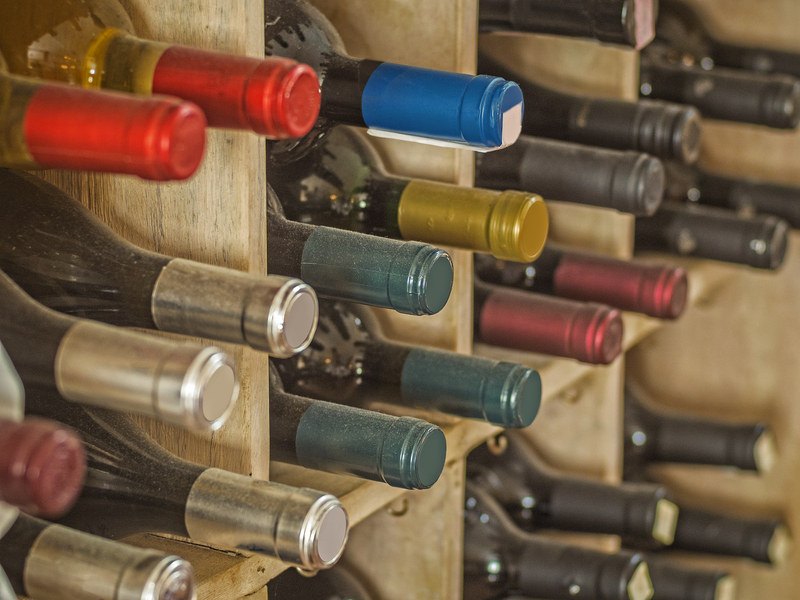Advanced Recycling Techniques for Restaurant Waste
Restaurants are a significant part of our social fabric, providing a delightful array of food and beverage options. However, with this great privilege comes great responsibility - particularly in managing waste. Advanced recycling techniques for restaurant waste are vital in reducing environmental impacts, promoting sustainability, and potentially saving costs.
The Importance of Effective Waste Management
Waste management is a crucial aspect of restaurant operations. With the increasing spotlight on environmental sustainability, restaurants cannot afford to overlook how they handle waste. Not only do efficient waste management practices reduce the ecological footprint, but they also enhance a restaurant's brand image and cater to an environmentally conscious clientele.
The Current State of Restaurant Waste
Food waste accounts for a substantial portion of the waste produced by restaurants. Estimates suggest that restaurants generate more than 11 million tons of food waste annually. This staggering figure highlights the need for advanced recycling techniques that minimize waste and maximize resource recovery.
Understanding Advanced Recycling Techniques
Advanced recycling techniques go beyond simple sorting and composting. These methods involve innovative technologies and processes that convert waste into reusable materials and resources. Here are some of the cutting-edge techniques gaining traction in the restaurant industry:
- Composting: While not new, advancements in composting technology can significantly enhance efficiency. Electric composters convert organic waste into nutrient-rich soil rapidly, reducing waste volume and producing valuable compost for local farms and gardens.
- Biogas Production: Anaerobic digestion is a technique where organic waste is broken down by microorganisms in an oxygen-free environment, producing biogas. This biogas can be used as a renewable energy source, providing an eco-friendly power solution.
- Solar Dehydration: This method uses solar energy to dry waste, reducing its volume and making it easier to handle. It effectively prepares food scraps for other recycling processes.
- Plastic-eating Enzymes: New discoveries have led to the development of enzymes that can break down plastic waste. Implementing such technology can significantly reduce the impact of plastic waste in restaurants.
- Pyrolysis: This technique uses high temperatures in an oxygen-free environment to decompose organic material. Pyrolysis can convert food and other organic waste into biochar, bio-oil, and syngas, all of which have practical applications.

Implementing a Successful Recycling Program
To successfully implement advanced recycling techniques, restaurants need a strategic approach:
Assessing Waste Streams
Understanding what, where, and how much waste is generated is the first step in effective waste management. Use waste audits to gather data and identify the primary sources of waste within your restaurant.
Staff Training and Education
Educating staff about the importance of waste management and proper sorting methods is essential. Implementing training programs ensures everyone is knowledgeable about recycling procedures and understands the benefits of reducing waste.
Partnering with Waste Management Experts
Collaborating with professionals in waste management can provide valuable insights and resources for implementing advanced recycling techniques effectively. They offer expertise in setting up systems and can help monitor progress.
Benefits of Advanced Recycling in Restaurants
The transition to advanced recycling techniques offers numerous benefits, including:
- Environmental Impact Reduction: By reducing the amount of waste sent to landfills and cutting down on greenhouse gas emissions, restaurants can actively contribute to environmental conservation.
- Cost Savings: Effective waste management can lead to financial savings, with reduced disposal costs and potential revenue from recycled materials.
- Enhanced Brand Image: Embracing sustainability attracts environmentally conscious customers, boosting reputation and potentially increasing patronage.

Challenges and Solutions in Advanced Recycling
Initial Investment and Technology Adoption
Advanced recycling technologies often require an initial investment. However, the long-term savings and potential revenue streams from recycled materials make it a worthwhile endeavor.
Maintaining Consistency and Staff Engagement
Consistency is critical in sustaining recycling efforts. Regular feedback, recognition, and incentives can keep staff motivated and engaged in achieving waste reduction goals.
The Future of Waste Management in Restaurants
As the global focus shifts towards sustainability, advanced recycling techniques will continue to evolve. Innovations such as waste-to-energy plants, advanced sorting technologies, and biodegradable packaging will dominate the future of waste management in the restaurant industry.
By investing in advanced recycling techniques, restaurants aren't just meeting a regulatory obligation; they are playing a vital role in nurturing a sustainable environment, which ultimately benefits the local community and the planet. With continuous advancements and increasing awareness, the future looks promising for integrating these advanced methods into mainstream restaurant operations.
In conclusion, the transition towards sustainable operations is not just a trend; it's a necessity. As we embrace the potential of advanced recycling techniques, restaurants stand at the forefront of this change, leading by example and demonstrating how innovative solutions can pave the way to a sustainable future.